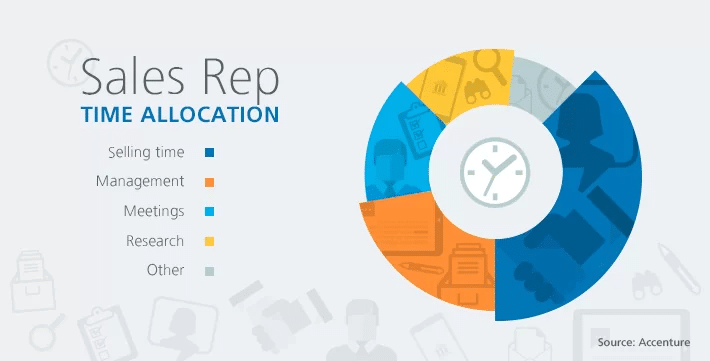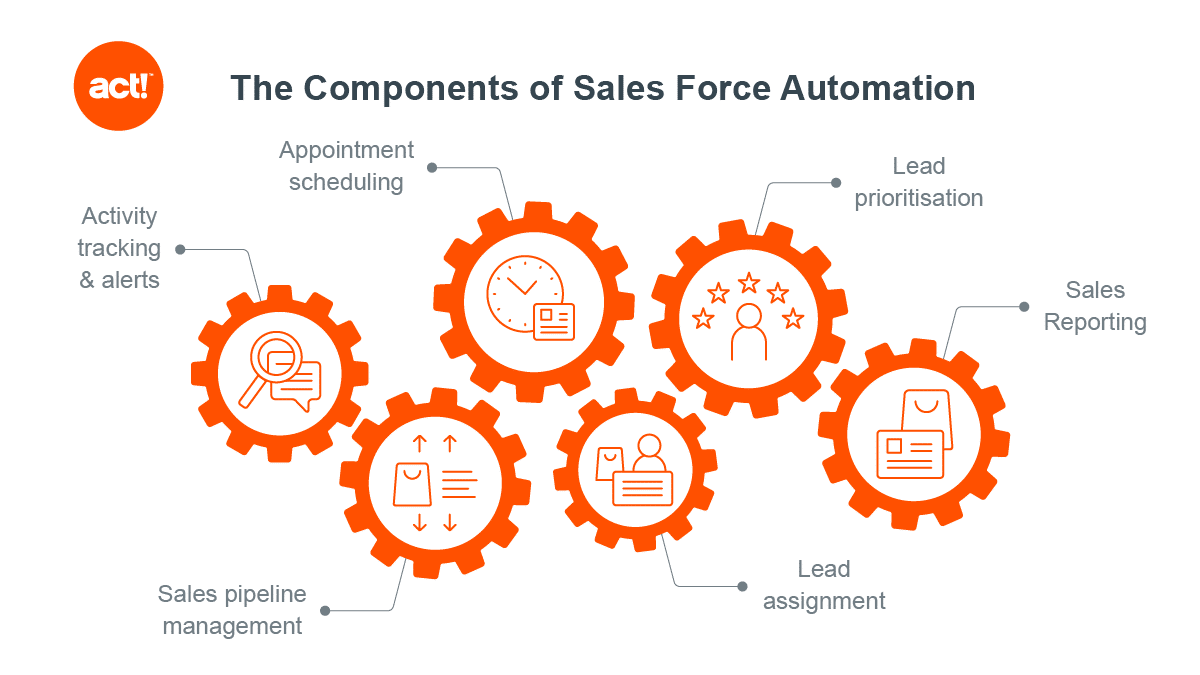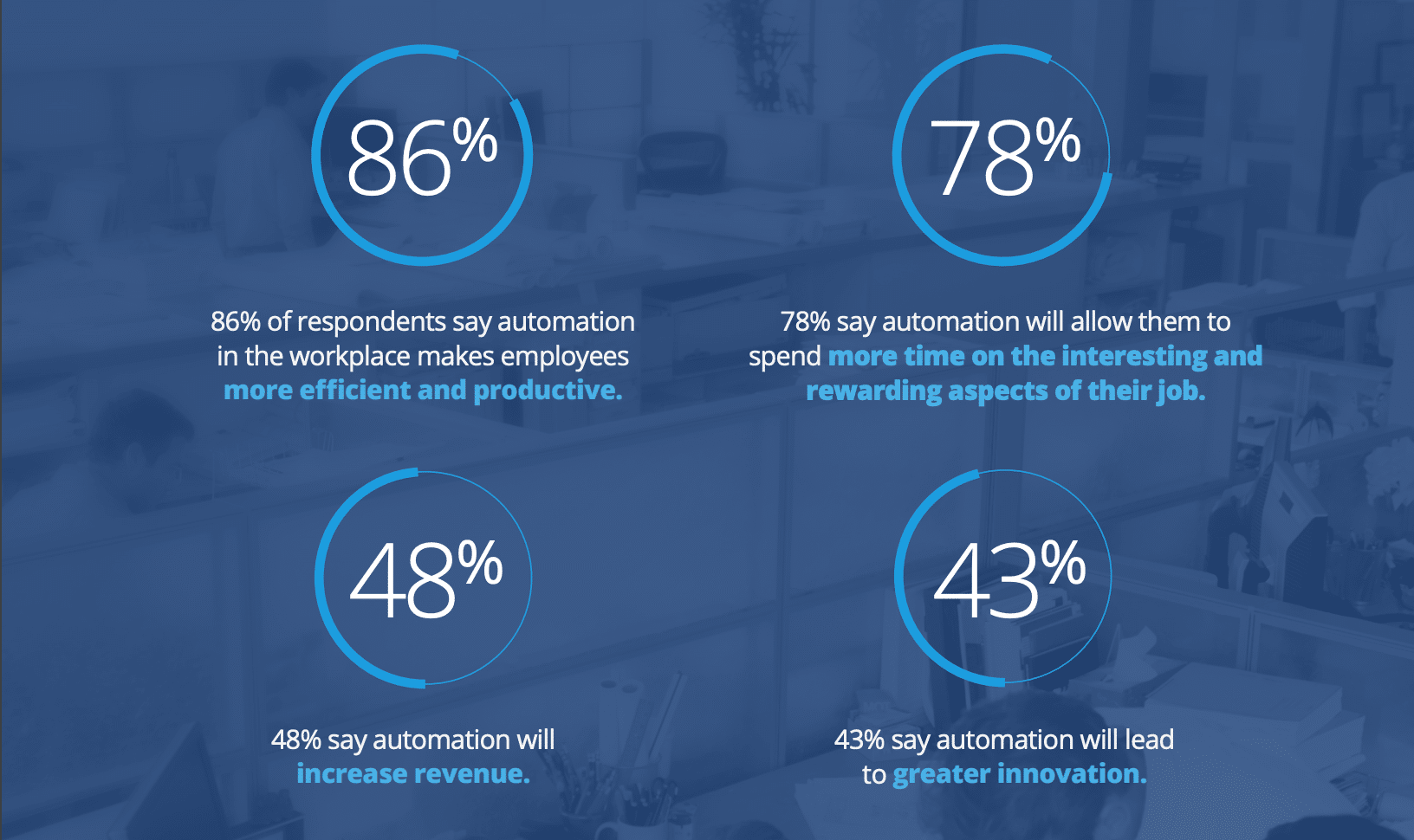In business, everyone knows that time wasted equals lost money and clients. This is a common issue that affects many companies, despite their size or the time they’ve been active for. The impact is even more critical if we’re talking about sales.
The truth is, time is our most valuable asset, but we lose a lot of it. It’s been found that sales reps spend, on average, almost two-thirds of their time on non-revenue-generating activities. This leaves them with only 35.2% of their work hours to complete sales-related tasks.
This is where sales automation can be extremely useful and profitable for small businesses. Instead of wasting time doing repetitive, manual tasks, working hours can be spent on actual sales activities.
The technology has arrived to save us lots of time and worry, but you don’t need to go as far as RPA + AI to enjoy the benefits. Most businesses are already experiencing the upsides of automation with their business processes.
What is sales automation?
Let’s be honest: manually entering your business’ documentation and data can be as uncomfortable as an awkward exit interview. However, sales automation can now use software to automate these repetitive duties. It can handle tasks like documentation, emails, inventory, and client data so your workers don’t have to.
The system can personalize communications and make predictions by collecting sales data. It can send automated follow-up reminders and manage your sales pipeline. This takes the responsibility to maintain customer relationships from your employees’ shoulders.

Sales automation is also a great way to manage and store all your company data in one place. Employees can search for information like customer contact details or purchase history. It keeps sales reps in the loop by sending them notifications when quotes are accepted by clients. By targeting potential customers, it can increase conversion rates too.
This display of information can be a great tool to fight the competition and remain competitive. If combined with a SaaS competitor analysis, sales automation can help small businesses understand what others are offering and shape their marketing strategies in line with this.
Sales automation is the future. It’s been estimated that by 2030, up to 30% of the hours worked globally could be automated.
How to implement it
The first thing companies should be looking at when implementing sales automation is their sales funnel and sales value chain. According to McKinsey, the application process can take from twelve to eighteen months.
Your sales funnel is the steps someone interested in your product takes to become a paying customer. The three main steps are awareness, consideration, and decision. However, different companies will have other steps too. A sales automation platform can accelerate the sales process and bring clients straight to the decision stage.

How to automate each step of your sales funnel
- Awareness. Awareness is the first point of contact with your target audience. It’s very important to get their contact details. Usually, the best way to do this is by asking them to enter their email address to get a free e-book or join an interesting email newsletter.
- Consideration. Your automated system should regularly send communications to your leads. It’s important to capture their attention and interest, but you must avoid being too aggressive and sales-y. At this stage, try to nurture the audience with useful information that relates to your product.
- Decision. If potential clients have got to this stage, they probably need only a small push to complete the purchase. Your final email should be dedicated to pure selling. You can include a discount or free trial to finish convincing them.
The benefits of sales automation
Especially for small businesses, a sales automation program can place you at the top of your industry. Bearing in mind that more than 77% of sales reps don’t follow a structured time management methodology at all, this productivity and free time increase can be very beneficial for those who do implement one.
These benefits include:
Greater accuracy
By eliminating manual tasks in the workplace, you are reducing the chance of human error. This can come at a very high cost. A small miscalculation when working out quotes or prices could hurt your company’s finances and/or reputation.
More organized
When records and data are automated, it’s much easier to access and organize them. For example, rather than recording all SKU numbers one by one, businesses have a system that facilitates the process. You only need to set everything up once and it’s ready to go.

Faster
Another benefit is that by making tasks faster, you leave your employees with more time to focus on other parts of their job. 78% say automation allows them to spend more time on the interesting and rewarding aspects, for example.
Your workers can use that extra time to embed process, hone it, and provide consistent standards to customers
Better connected
Having templates for every kind of email helps companies get in touch with their clients on a more frequent basis. With the time you gain from this, you can do some call quality monitoring for your sales calls and look into what process improvement you can make.
More revenue
It has been found that 48% of companies say automation increases revenue. If sales automation software can target potential clients, contact them regularly, and nurture the company-customer relationship, this eventually results in more sales and happy customers who leave positive reviews.
Conclusion
Small businesses that invest in sales automation soon start seeing the advantages. Automation is the future: accurate, faster, and more productive.
In just a few seconds, this modern software can create personalized emails or professional proposals. This can be the push your business needs to take it to the next level and help it to grow.
All you need to do is install the software, adapt it to your needs, and get ready to enjoy the benefits of automation.
The post Why Small Businesses Need Sales Automation and How to Implement It appeared first on Tweak Your Biz.
Why Small Businesses Need Sales Automation and How to Implement It posted first on https://tweakyourbiz.com/
No comments:
Post a Comment